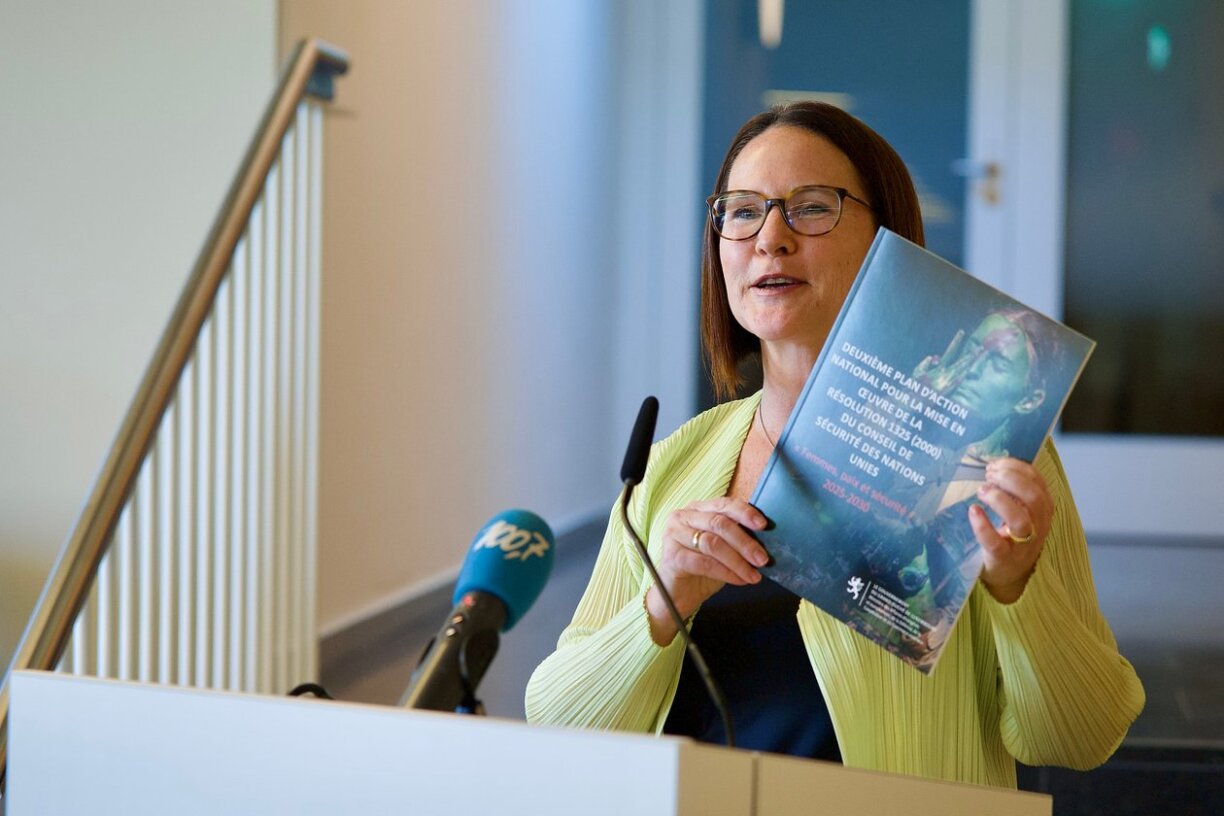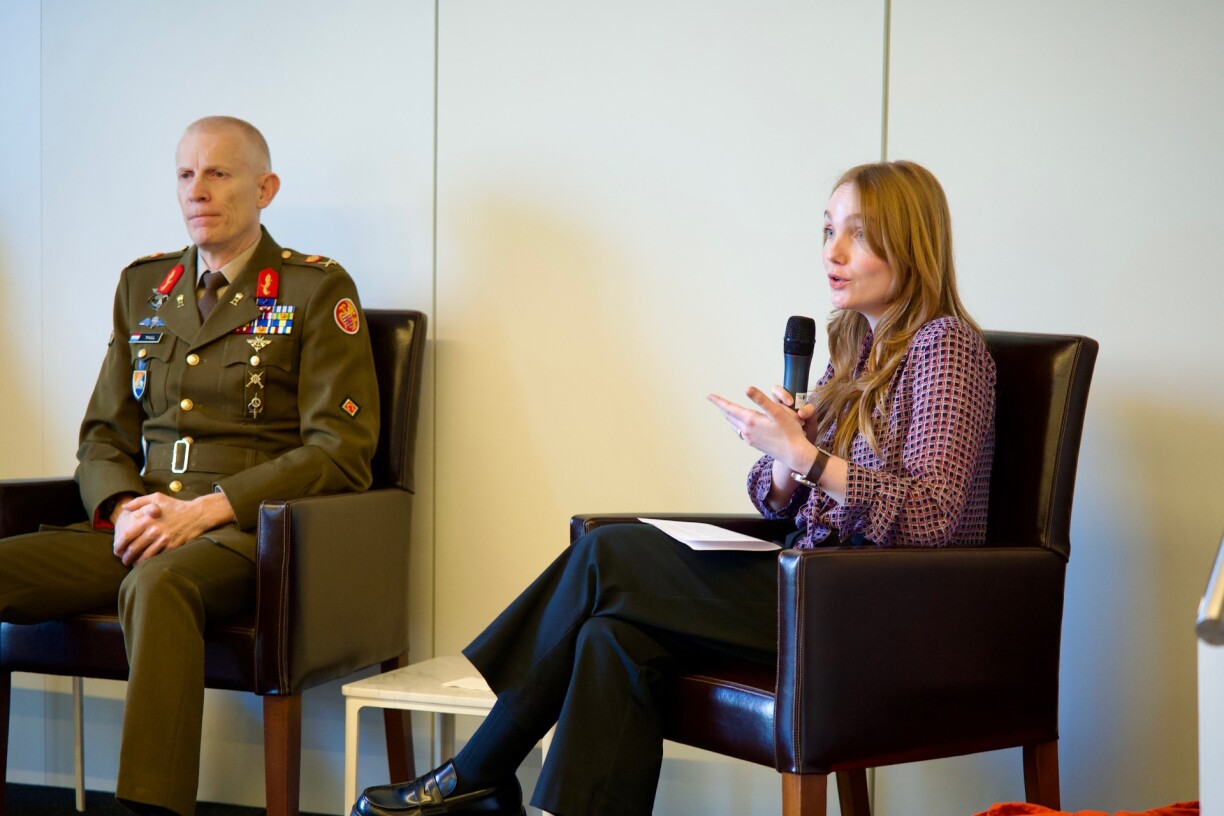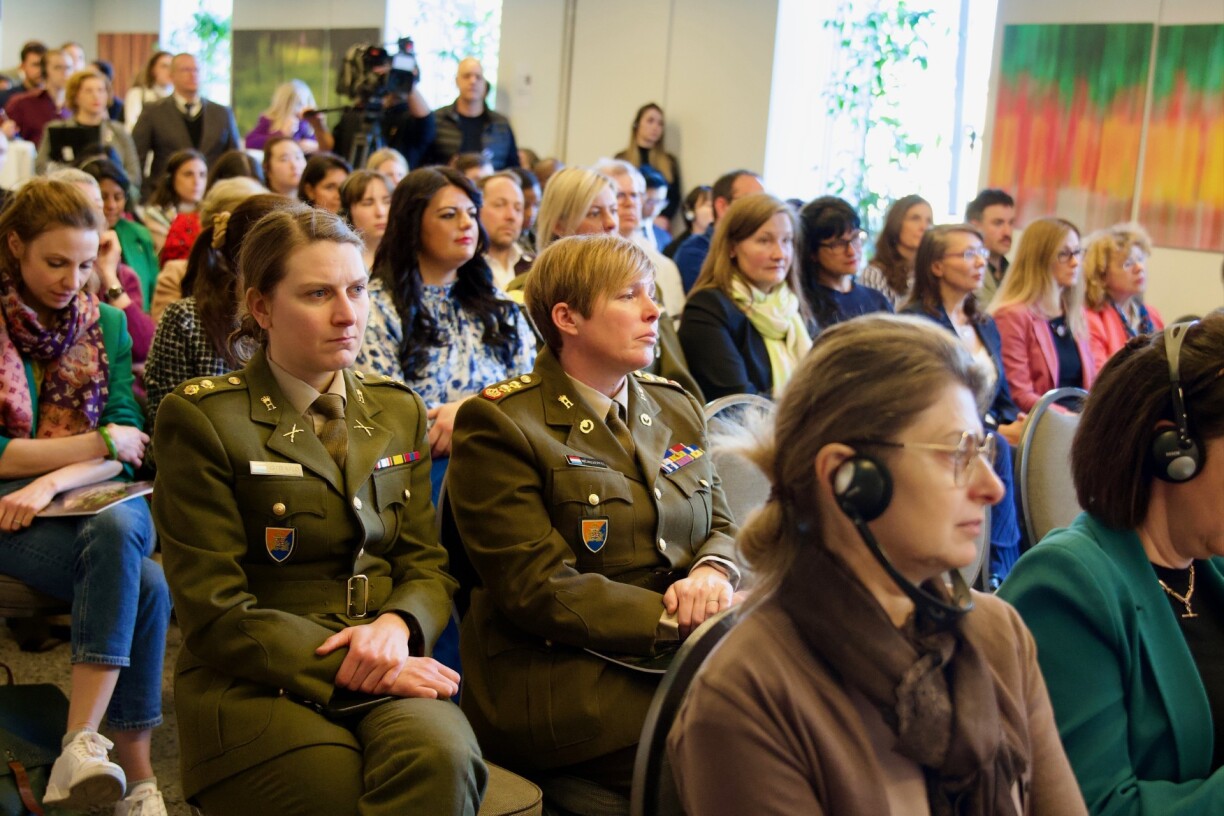
Geopolitical tensions continue to escalate, dominating international headlines: from the US-Ukraine clash in the Oval Office leading to US President Donald Trump halting all military aid to Ukraine, to the fear of starvation caused by Israel’s blockade on all goods entering Gaza, to French President Emmanuel Macron offering France’s nuclear umbrella to protect Europe if tensions continue to increase between the US and the EU. And that’s just in the last week.
For centuries, war has been shaped by male leadership, and women have remained sidelined in peace negotiations today.
Ahead of Women’s Day on 8 March, Luxembourg on Friday held the Second National Meeting on Women, Peace and Security, releasing a 5-year action plan of the same name. This follows the first action plan introduced in 2018.
Speaking to RTL Today before the event, Claire Schadeck of CID Fraen an Gender (CID Women and Gender) stressed the importance of women in both civil and political society.
"[In both action plans] there has been a lot of emphasis on prevention, but also on promotion of women in leadership roles, in peace resolutions, and in conflict prevention. If more women were involved in the prevention of conflict, the world would look different,” she said.
This sentiment was echoed by Minister for Gender Equality and Diversity, and Minister of Defence Yuriko Backes, who delivered a keynote address at Friday’s meeting.
“The second national action plan builds on the first, which clearly identifies that we need women not only in the armed forces: we need women in decision-making roles around peace negotiations and within communities, and within the countries where we are trying to broker peace,” Backes said.
As things stand, women remain very much a minority both in the armed forces and at the peace negotiations table. UN Women has highlighted this, stating that women being largely absent from peace processes “results in peace agreements and ceasefires that rarely address the perspectives, needs, and concerns of women and other vulnerable groups.”
Responding to RTL Today in a statement, the Ministry of Foreign Affairs stressed: “In recent years, the world has witnessed a worrying pushback against gender equality and human rights, with growing restrictions on women’s rights to work, education, freedoms of movement and expression. At the same time, women’s unequal participation in peace negotiations and post-conflict governance remain deeply concerning realities.”
Throughout history and today, women remain significantly overrepresented as victims in conflicts, often experiencing sexual violence, despite having limited influence over solutions.
“On an international dimension what we see happening is extremely worrying. Less female peace negotiators, this is all going in the wrong direction,” said Backes. “We see violence, and also rape as weapons of war. This destroys societies, and there can be no impunity for this.”

Schadeck pointed out that over the last year, the rise of sexual violence and rape during times of armed conflict has risen rapidly. It is here that war and peace overlap. Stressing on how normalising acts of violence in everyday life sets a dangerous precedent for acts of violence during war, she said, “Gender-based violence during times of armed conflict is only possible because we tolerate it in so-called times of peace.”
While recruiting women in the army is also an important step for equality, ensuring their safety is vital, too. For this, a Zero Tolerance policy is soon to be distributed to every member in the Luxembourg army. “We need to find ways to protect women, and that’s why raising awareness about gender issues from the beginning of recruitment in the army is essential,” said Backes.
Read also: No place in the army is reserved for a man, says General Steve Thull
A recent UN report stated that when it comes to women’s rights in a quarter of countries, things are only getting worse.
One way to improve this: greater representation of women in managerial positions, in politics, and in power. New data from Eurostat, however, identified how Luxembourg is falling short: While 3.7 million women in the EU held a managerial position (up from 3.1 million in 2014), Luxembourg has only 22.2% of female managers in 2023, placing it at the absolute bottom among EU countries, and far behind chart leaders Sweden (43.7%). The data also shows that Luxembourg’s low-ranking share of female managers was almost identical to 2014.
To change this, Backes said that it is up to companies to put more effort into equality and sustainability.
“Companies need to realise that the more women and gender balance they have in their company and on decision-making boards, the better it is for their company,” said Backes. “It’s also better for their economic or financial results, and for carbon footprint – there are studies that show this. So I think companies need to realise that having all male decision-making boards is really not the sustainable way to be a company of the future.”
To encourage this, several initiatives are in place:
First, the Ministry of Gender Equality and Diversity’s Positive Action programme, where companies are given an analysis of their current status followed by a plan to improve and encourage recruitment, promotion, and managerial positions for women. Another European initiative is the Female board pool, which serves as a source of recruitment for high-level female hires.

With the world around us rapidly changing and rights many took for granted now coming under threat, concrete solutions need to be put into place.
The Ministry of Foreign Affairs said, “It is essential to resist regression and ensure the full, equal, and meaningful participation of women in conflict prevention, resolution and management. Priorities must include disarmament, non-proliferation, combating sexual and gender-based violence, addressing impunity and protecting individual rights.”
To support this, the Ministry added that Luxembourg’s second National Action Plan now expands efforts to tackle global challenges such as climate change, cybersecurity and technology-facilitated gender-based violence.
“In regard to what is happening around the world on a global agenda, we need to implement laws that are promoting gender equality,” said Schadeck, “because if we don’t have them, it’s going to be very, very easy to take these rights away.”
“Together with UN women, with the International Criminal Court, we need to make sure that the global victimisation of women during war does not go unpunished,” said Backes. “We really need to make sure that this doesn’t further regress.”
As Women’s Day 2025 celebrates women and diversity through gatherings, marches, theatre events and more, the threat seen around the country looms and serves as a reminder that firm steps need to be taken.
“Luxembourg is not this tiny island where nothing’s going to happen,” said Schadeck. “Everything happening in the countries of our neighbours is happening here as well, even if not on the same scale. We are going to reach that scale sooner or later – so we need to prevent that, and act against it.”